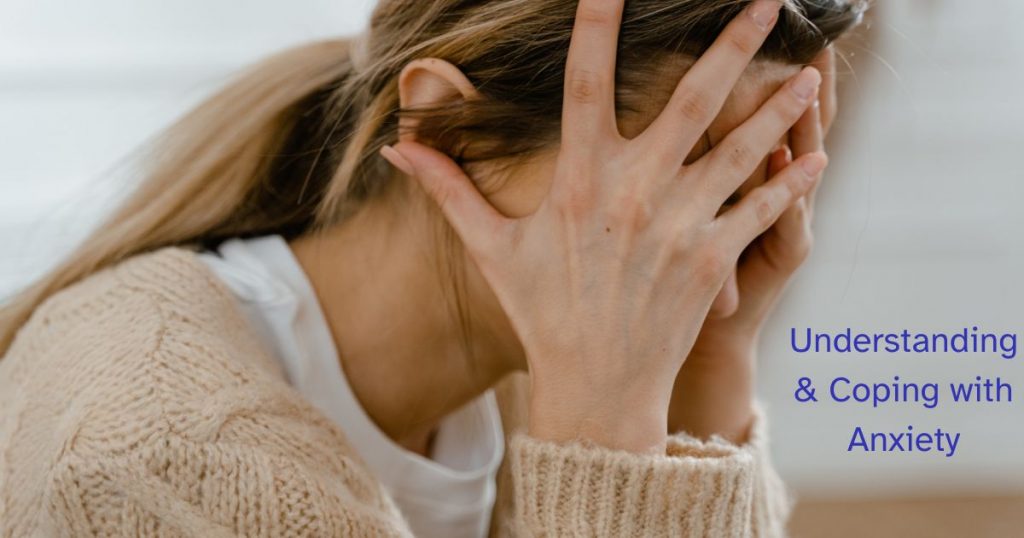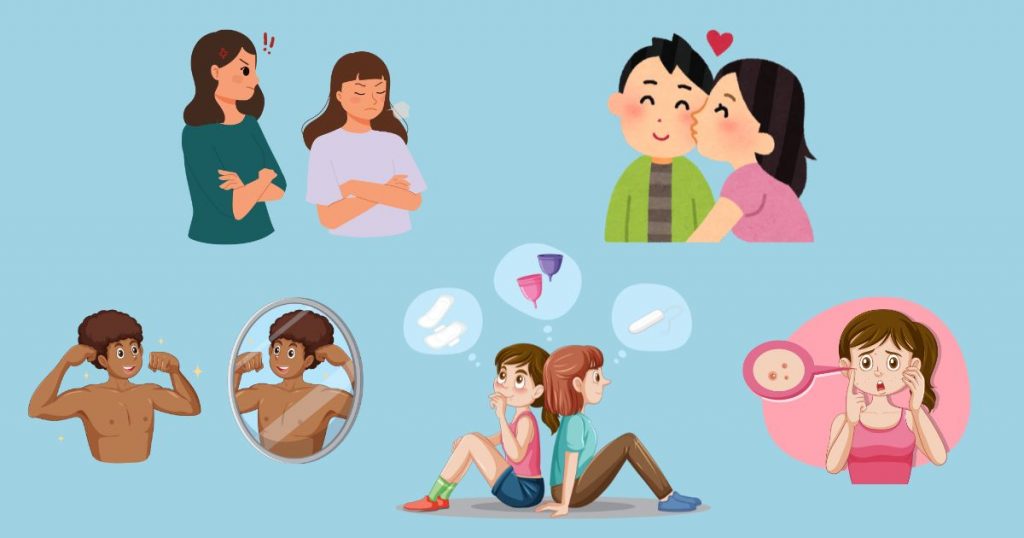Understanding & Coping with Your Anxiety
Sara (These stories are based on actual people. A few facts have been changed to protect their anonymity.) breathed in the cool fresh air. Her car smoothed along the open corridors of Highway 395. White yellow early morning sunlight poured through open windows. She felt the serenity and peacefulness of this wondrous break of day. She noticed how the sky sat like an upside-down blue bowl seeming to encapsulate the mountainous landscape. She heard the birds’ songs bounce from the trees, reverberating and intensifying their orchestral warmup. She relaxed behind the wheel, as she drove back to school after her Spring break in the Sierras. It was good to have time alone. She hoped that this, the last and final semester of graduate school, would pass quickly. Suddenly, out-of-nowhere,she felt “It”. Tingling slowly began in her left fingertips. She shook her hand and continued to drive. But the tingling persisted, and crawled, like a spider, from her wrist, up her arm, onto her neck and into the left side of her face. Sara’s heart raced. She never experienced anything like it before. She prided herself on her good health, especially since all the adults in her family had had heart attacks or strokes. “Oh my God, I’m having a stroke. Here I am miles from home and civilization, all alone. No one will find me. I won’t be able to finish school; there goes my dream of a Master’s, a good job. I’ll be dead or deformed…” Panicked,she pulled off the highway into a rest area. “What should I do? Who can help me? What if no one is around?What if I ask someone and I end up getting robbed?” By now, Sara’s entire left arm and face were numb.She stopped the car and just sat there, chest pounding, feeling lightheaded and more scared than she could ever remember. She breathed deeply, trying to calm herself. And then, slowly she noticed the numbness started to disappear.Checking herself, she moved her hand across her face, prodding and poking, then down her left arm squeezing it from top to bottom. It had sensation. Then she shook her left hand and rubbed her fingers together. The numbness was gone. Shaken, she carefully continued the drive home. She didn’t know what happened to her, and tried to put it out of her mind. Years later, following similar instances, Sara would begin to understand what had taken place,that she had had a Panic Attack. But for now, the journey was frightening. Sara’s story is real. She is one of the millions of Americans who experience anxiety.Statistics state that 20 – 37 million Americans suffer from anxiety of some type. The estimate of 20 million means that 1 in 9 people have some problem with anxiety! Not everyone who experiences symptoms of anxiety has a panic attack, nor even an anxiety disorder. Anxiety,in and of itself, is a normal emotion. All of us have had times when we feel anxious. Sometimes the anxiety may even be helpful to us by prodding us to complete some task. Excess and intense anxiety over time, however,creates a problem. It throws us off balance, disrupts our lives, and creates chaos, or a lack of order. It is this excessive anxiety that defines anxiety disorders as outlined in the current manual mental health professionals use, known as the DSM- V. On the other hand, persons like Sara who have panic attacks can develop panic disorder. Sara’s symptoms were intense and seemed to come out-of-the-blue. She didn’t know it, but she had had a panic attack. Her symptoms included heart palpitations, sweating, numbness and tingling in her extremities,light headedness, trembling and fear of dying. What is anxiety? In its simplest definition, anxiety is “worry or uneasiness about what may happen,” or “a tense emotional state”. However, all of us experience some anxiety. Some anxiety is part of our everyday lives,and at times may even help us to accomplish tasks. However, too much anxiety, intensely felt over time is a problem.Anxiety affects our whole beings – body, mind, spirit. It affects us physiologically & behaviorally,psychologically, and spiritually. Physiologically: physical symptoms may include: tension, sweating, heart palpitations, increased heart rate, dry mouth, stomach/gastrointestinal distress. Behaviorally: anxiety can sabotage our actions, affect our speech, or even our memory. Psychologically & spiritually: we feel apprehensive, distressed, we may fear we are going crazy. We may even feel some amount of detachment, or think we’re going to die. How does Anxiety differ from Stress? Hans Seyle, the father of stress research, says stress occurs when “our body responds to a demand in a nonspecific way”. What does that mean? Simply put, when we experience any stressor, our bodies’ balance/equilibrium gets shaken up and we react. Something can happen, and we respond to it. The response may or may not have anxiety attached to it. For example, Ron, a fire fighter, worked on the team putting out major brush fires. His body became tired during his long hours on the line, but he did not feel emotionally anxious. On the other hand, cumulative stress over time can lead to the development of an anxiety disorder. Learn More About Dr. Kindle Connect wiht Dr. Kindle
Understanding & Coping with Your Anxiety Read More »



